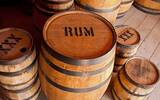What kind of water is better to make coffee?

More than 98% of a cup of drip coffee is water. What kind of water is used to brew the coffee directly affects the final flavor performance. Therefore, water is a basic and important constituent element of a cup of hand-brewed coffee, and its ranking status can only be said to be in the coffee bean itself.
In daily life, there are a variety of choices of water. What kind of water is suitable for making coffee? With this question, please follow Qianjie into our "Water" article today.
Coffee brewing water, what kind of requirements need to be met?
In the process of brewing coffee, water acts as a solvent and is responsible for extracting various flavor components from the coffee. In general, brewing coffee has two requirements for water, one is softness and hardness, and the other is pH. Ppm requires a special TDS reader, and ph can generally be tested by instrument or ph for testing. )
Let's talk about the pH of water first. we should all have learned it in textbooks. Ph is 7 for neutral, and the smaller the number, the greater the acidity; the larger the number, the greater the basicity. The ph value of coffee is generally between 5 and 6, which is weakly acidic. When using weakly alkaline water to make coffee, it will neutralize some of the acidity in the coffee and reduce the sour taste, thus balancing the overall taste of the coffee. At present, it is generally recognized that coffee is suitable for brewing water in the industry, and the ph value is generally 6.5 to 7.
Water seems colorless and tasteless, but in fact, clean "pure water" does not contain nothing. For example, "transparent" sea water contains a lot of sodium, potassium, calcium, magnesium and strontium plasma, so it is easy to find that water is "impure". In daily contact with water, these minerals will exist in trace form, although not easy to detect, but can directly affect the softness and hardness of the water.
According to World Health Organization (WHO) 's drinking Water quality Criterion, the hardness below 200ppm is called soft water, and those above 200ppm are called hard water. In general, hard water should not be used to make coffee, because it will make the taste of sundries bitter. For the brewing water of coffee, the recommended range of SCA is 75-250 ppm, the ideal value is 150ppm.
The composition of water is made up of numerous elements. For coffee extraction, the most important are magnesium, calcium and bicarbonate. The hard water mentioned above essentially refers to too much magnesium and calcium. Water containing an appropriate amount of calcium ions can better dissolve the acidity of coffee, while water with appropriate amount of magnesium ions can effectively improve the sweetness and aroma release of coffee. Therefore, if you want the coffee to taste good, you must have the right amount of calcium and magnesium ions in the water.
Can tap water be used to make coffee?
According to the above water requirements, first of all, we can get rid of tap water first. Guangzhou, where the street used to be located, for example, although tap water is classified as soft water because of the hardness of 150~180ppm, there is still a small amount of chlorine left. Experienced friends should know that the inner wall of the kettle that has boiled tap water will soon form a layer of white scale, and the aroma of coffee will be weakened, and the uncomfortable bitterness will be especially obvious.
So in many families, in order to get better drinking water, filters are usually added to the tap water. If we want to know whether the hardness has decreased, we have to use a magic weapon-- TDS reader, and try to cook it. After comparing the taste, we will know whether the extraction has been improved.
See here, perhaps some friends will ask: so troublesome, is there ready-made bottled / barreled water suitable for making coffee? Of course there is! At this time, mineral content and ph are the key objects that we need to pay attention to.
Pure water, mountain spring water, mineral water, whose coffee tastes better?
In order to explore this problem, Qianjie first compared the daily mountain spring water produced by the store, and spent a lot of money to buy pure water and mineral water, and brewed a pot of bitter coffee and a pot of sour coffee with the same parameters to see what the effect would be.
According to the information provided on the packaging of drinking water, the PH value of pure water used in Qianjie is 7.1 ±0.5 TDs is 37 ppm, that of mountain spring water is 7.3 ±0.5 TDs is 0 ppm, both are neutral water, while the PH value of mineral water is
Important Notice :
前街咖啡 FrontStreet Coffee has moved to new addredd:
FrontStreet Coffee Address: 315,Donghua East Road,GuangZhou
Tel:020 38364473
- Prev

Serious inside roll! More than ten thousand coffee shops are closed!
▲ click to follow | Daily boutique coffee culture magazine coffee workshop coffee industry in recent years, chain brands large-scale expansion of the number of stores, improve brand influence, boutique cafes are not to be outdone, store decoration, creative coffee and other weapons to join the coffee track. But the economic downturn has affected all
- Next

The origin of barrel fermentation, the way of barrel treatment, the introduction of Honduran Shirley and Litchi Orchid Coffee.
Coffee beans are actually the seeds in the coffee fruit, and the treatment takes out the coffee beans. In the traditional treatment, there are sun treatment, water washing and honey treatment, but with the continuous development of the coffee industry, there are more and more treatment methods. Now there are many coffee treatments on the market, which are collectively referred to as special places.
Related
- What grade does Jamaica Blue Mountain No. 1 coffee belong to and how to drink it better? What is the highest grade of Blue Mountain coffee for coffee aristocrats?
- What are the flavor characteristics of the world-famous coffee Blue Mountain No. 1 Golden Mantelin? What are the characteristics of deep-roasted bitter coffee?
- Can I make coffee a second time in an Italian hand-brewed mocha pot? Why can't coffee be brewed several times like tea leaves?
- Hand-brewed coffee flows with a knife and a tornado. How to brew it? What is the proportion of grinding water and water temperature divided into?
- What is the difference between Indonesian Sumatra Mantinin coffee and gold Mantinin? How to distinguish between real and fake golden Mantelin coffee?
- What does bypass mean in coffee? Why can hand-brewed coffee and water make it better?
- Unexpected! Ruixing Telunsu lattes use a smoothie machine to foam milk?!
- % Arabia's first store in Henan opens into the village?! Netizen: Thought it was P's
- Does an authentic standard mocha coffee recipe use chocolate sauce or powder? Mocha Latte/Dirty Coffee/Salty Mocha Coffee Recipe Share!
- What is the difference between Vietnam egg coffee and Norway egg coffee? Hand-brewed single product coffee filter paper filter cloth filter flat solution!

